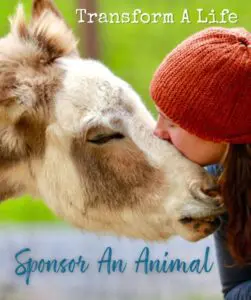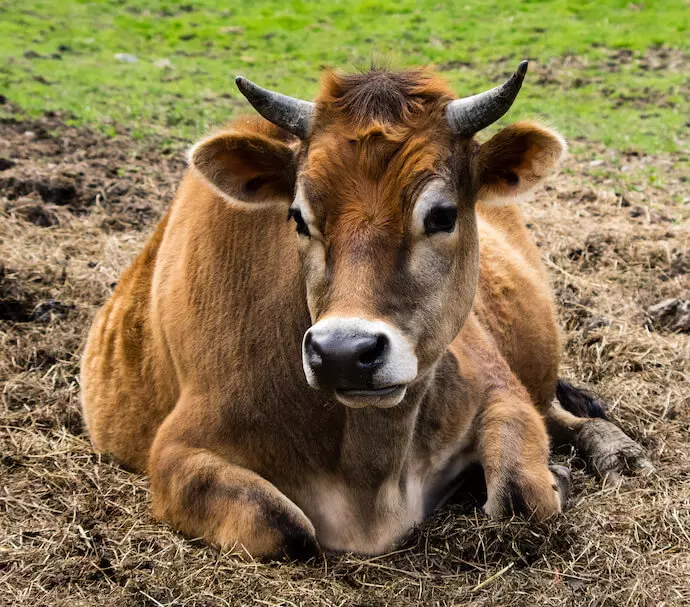Hindsight Is 20/20: Reflections on Derby Day
My father, Ed Stevens, was a charismatic, larger-than-life man who built Rocketts Mill Farm one pasture, one road, one barn at a time—the same way we built Catskill Animal Sanctuary. In its heyday (the 1980’s and 90’s), Rocketts Mill was one of the East Coast’s leading thoroughbred breeding and training farms, and to say that my childhood was magical in many ways is an understatement. What animal lover wouldn’t want to grow up in a place where pastures filled with horses and barn lofts filled with sweet-smelling hay were her playgrounds? Not that it was perfect, mind you: my parents’ marriage wasn’t happy; my mom drank. Still: Horses. 300 acres. Just sayin’.
In the thoroughbred industry, our farm was one of the “good ones.” Dad’s standards of care were high: the stall were large, the bedding generous, the pastures lush, rolling, and enormous. The horses in training got a rest day on Sundays, and Dad had a zero-tolerance policy towards abusive behavior: any employee who mistreated an animal was fired on the spot.
It never occurred to me to question whether the horses bred and trained at Rocketts Mill were happy. As far as my child’s mind could comprehend, they certainly were. But what if someone older and wiser had asked me whether Rocketts Mill should exist at all? Whether it was ethically justifiable to subject horse after horse to the common industry practices of confinement to a stall for 23 hours a day, training beginning at 18 months, when horses don’t physically mature until five or six, doping to mask pain and injury, whipping to encourage faster running (my Dad didn’t consider this abuse), accepting training and track deaths—by the thousands—as an inevitable part of the “sport,” and finally, slaughtering tens of thousands of unwanteds—the ones unable to make it to the track, the ones who don’t win, the ones who break down, the ones whose racing careers are finished but who aren’t “good enough” to be turned into breeding machines to produce the next generation, etc.—whether it was justifiable, in other words, to use them for our benefit without regard for their well-being, which is what we humans do with most other species on the planet? I would have marched my young self to the barn office and said a ten-year-old’s version of, “Houston, we’ve got a problem.”*

Saturday, May 4 marks the 145th running of the Kentucky Derby: upwards of 150,000 people will attend; upwards of $150,000,000 will be bet on this one race, the crowning glory of a $5 billion industry. While we don’t intend to harm by going to the races or placing a bet, participating validates and funds an industry whose reality couldn’t be farther from the pomp we see on TV: mint juleps, women in fancy hats, the multi-colored jockey “silks,” the gleaming horses. Participation on any level gives the nod of approval to an industry with a hideous underbelly. There are so many racetrack deaths—close to 900 in 2018 alone and countless more “racetrack-related deaths”—that the New York Times recently stated, “The mounting death toll has led the onetime sport of kings into a crisis unlike any in history.”
If you can hear me up there, Dad: I LOVE YOU, and will always beam with pride both at what you accomplished and the life you afforded us. But friends, my nostalgia for a magical childhood and my love for my father aren’t reasons to support an industry whose sole purpose is profit. Neither are gambling habits, or the adrenaline rush from the track, or whatever anyone’s motivation might be for “going to the races.” These days, I’m far more interested in what it means to be human, and in using that profound privilege in support of those less lucky than I, including those who will march out to the track tomorrow for the 145th running of the Kentucky Derby. May they all cross the finish line.
Today and every day, Dad… I stand with the horses.
*For a more in-depth critique of horse racing, visit horseracingwrongs.com.
A Day in the Life, Herd Around The Barn
Tagsanimal rescue, animal sanctuary, derbyday, derbyday2019, horse rescue, horseracing, horses, kentuckyderby, racing







This is beautiful Kathy, and I’m so happy that you shared your story. I grew up in a family who loved thoroughbred racing. As a young child I used to love to visit the paddocks to see the horses, and play with the foals in the Spring. Little did I know what these horses lives would become. As I grew, so did my love and devotion to animals. However, I watched horse races on TV, because my family told me that this was the “sport of kings”, and that these horses were lucky to be race horses, who loved to run. I never questioned that until I saw Ruffian break down. That left such an indelible mark on me that I have never watched or attended another race. I pray that some day, humanity will stop abusing and killing animals for food and sport.
Indeed, Tara…little do we know. The dark side remains a well-kept secret: check out Horseracing Wrongs for helpful info and to get involved in the effort to end this industry.
Kathy,
Thank you for your beautiful story. With my childhood being not much different from yours, this story and your mission gives me strength.
Strength needed so I can also carry a bit of the weight. Everybody needs roll-models in their life and you are definitely a big one for me.
What a great job you are doing, every day! A true inspiration.
Lonneke–Thanks for your kind words. It sounds as if you, too, are a role model for others trying to align their daily choices with their values. Thank you and onward!
Kathy, as always, thank you for these words and standing strong in your convictions. I will be sharing again!!